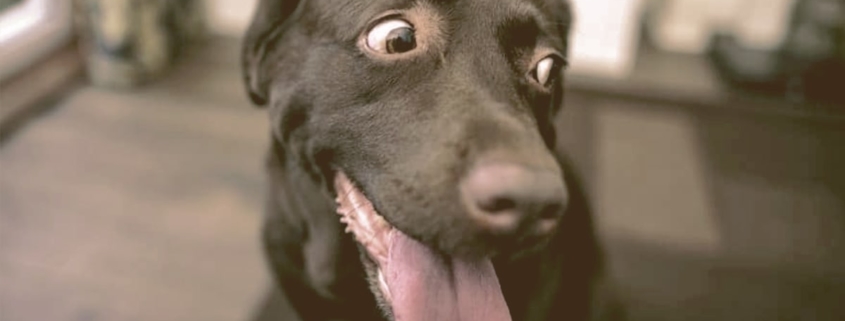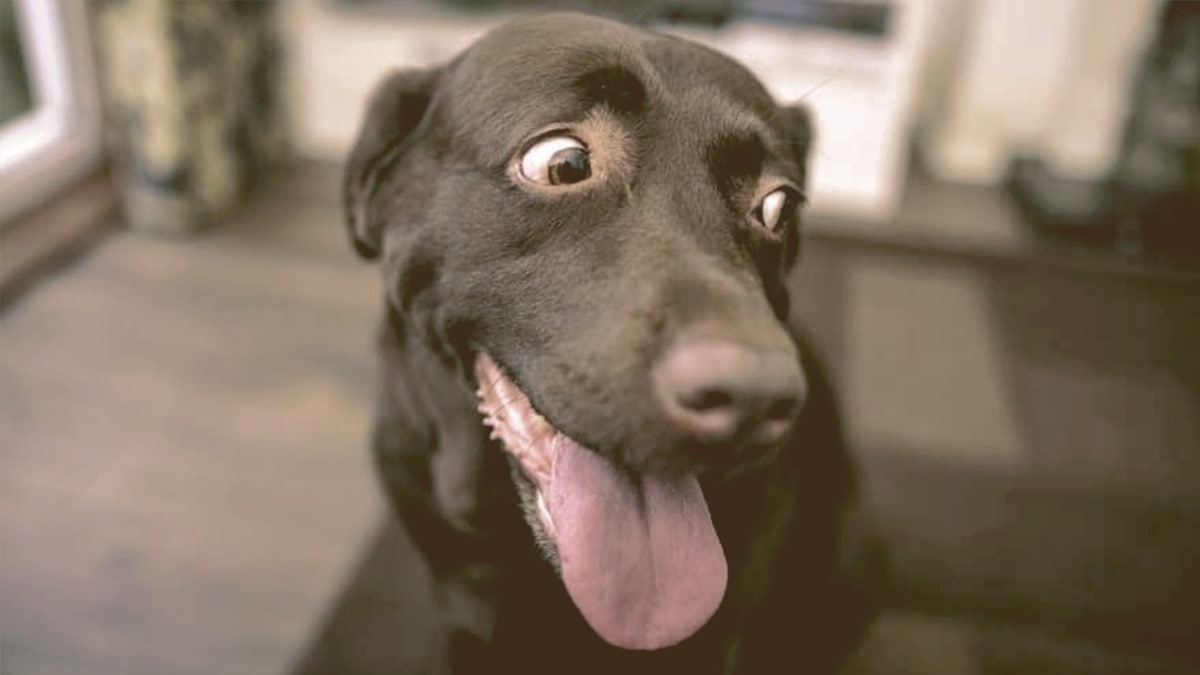
9 Reasons Why Your Dog is Panting and Restless?
Alex Vicente • Updated on August 1, 2023
- This review contains affiliate links. Read more here.
- Not a substitute for professional veterinary help.
When your dog begins excessively panting, it may be time to talk to your local vet.
Still, there are many far-ranging reasons why your dog might be acting so outside their normal range of behavior.
You’ll want to know exactly what causes this kind of problem and whether or not it’s treatable.
If you’d like to know some of the reasons that could explain why your dog is restless and panting more than usual lately, you’ve come to the right place.
Below we’ll break down the 9 biggest reasons dogs get restless and rapidly pant.
Then, we’ll suggest other symptoms you can look for to narrow the possibilities.
Table of Contents
Why is My Dog Panting More Than Usual?

Dogs can pant more rapidly due to a number of causes. These causes range from temporary dehydration all the way to chronic conditions like Cushing’s disease or heart failure.
In nearly every case there are treatment options available. These could include anything from providing the dog with more water and a cooler environment, to exercise therapy, alongside certain medications.
In each of the following 9 sections, we will highlight one possible reason why your dog may be panting more than normal. We’ll also provide you with a list of other symptoms that may coincide with a given condition.
Other resources that you may be interested in:
- The Best Harness for a French Bulldog: Everything You Need To Know
- English Bulldog Pitbull Mix: The Ultimate Guide
Your Dog’s Breed May Play a Role in Breathing Problems
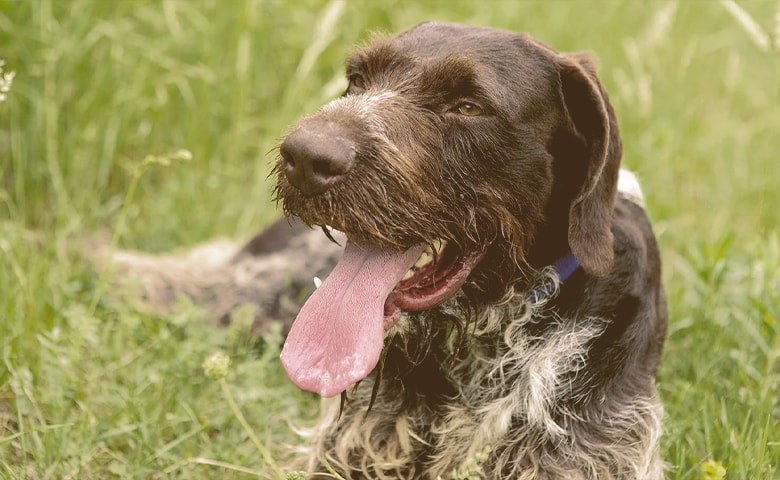
We’ll get this one out of the way first because it is perhaps the simplest and most straightforward reason for a dog to pant more rapidly than normal. Some breeds of dogs, like pugs, are at a far higher risk of breathing issues due to their genetic makeup.
In many cases, these breathing issues are the result of having a flat face as opposed to a snout. Though their snout has changed through breeding, the tissue inside hasn’t, blocking their airways. They also cannot cool themselves down as easily because they don’t sweat as much. They instead have to rely on panting, which in turn further dehydrates them.
This condition is known as brachycephalic obstructive airway syndrome. Over time BOAS can cause serious negative effects in a dog’s life. They are more prone to dehydration, heatstroke, and heart issues. They can also experience negative effects that mess with their vision, hearing, skin, and dental health.
Veterinarians frequently suggest surgery to remove the blockage. It’s important that something is done because if it is not, in all likelihood your dog’s lifespan will be cut short. At the same time, we should note that flat face dogs naturally pant more rapidly than other breeds to make up for their lack of a snout. Your vet should know whether or not treatment is necessary.
Your Dog May Be Overheated and Dehydrated
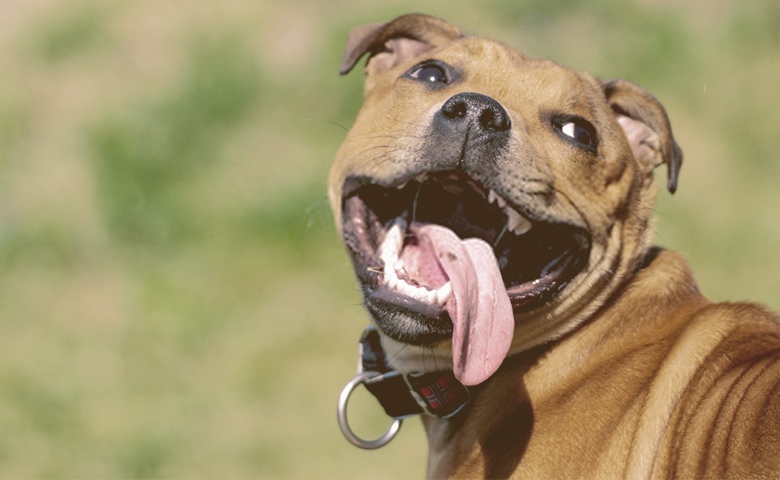
If you live in an area that gets excessively hot during the summertime, there’s a chance that your dog is overheating. Especially if they’re an outside dog. Of course, this can be the case with inside dogs as well if your air conditioning is off or currently not working. If this sounds like you, then there’s a good chance that this is the reason your dog won’t stop panting.
The average breathing rate for dogs usually falls between 30 to 40 breaths per minute. However, when they begin to overheat that number increases because they are losing water from their lungs and bodies too quickly. The cool air they suck in acts as a temporary substitute to cool them off in place of no water.
This increase in panting is normal for short walks on a hot day, but if it’s persisting even when they’re at rest, there’s a very good chance they are dehydrated or getting there. It’s important to move them into a cooler environment with lots of water until your vet has a chance to screen them for any other potential issues.
Your Dog Could Be Experiencing Anxiety

Dogs experience anxiety similarly to humans. In fact, some of the same antidepressant medications used to treat humans are also used to treat dogs. Further, there are behavioral therapies available that have seen great success.
When they do have anxiety, dogs will often pace around, stop eating and urinate more frequently. Along with those symptoms comes excessive panting, caused by how quickly they are losing water due to the cortisol (stress hormone) pulsing through their body.
There are many different types of anxiety and each one may require a different form of treatment. Below we’ll lay out two of the most common types of anxiety in dogs and suggest ways you might be able to manage it with the help of your local veterinarian.
Dogs With Noise Phobic Anxiety

The anxiety could be a chronic condition or it could be due to specific stimuli that frighten the dog. Dogs with this condition are generally referred to as “noise phobic.” They often exhibit extreme anxiety when there are loud noises around that they aren’t familiar with.
For example, in the US, it’s not uncommon for some dogs to have a massive spike in anxiety around the fourth of July. This is because in a lot of places loud firecrackers are going off during the day and fireworks are lighting up the sky at night.
Similarly, some dogs have the same reaction to thunderstorms. If your dog only pants heavily and acts restless when events like the ones we’ve mentioned are taking place, then there is a chance anxiety is the issue and they may need to see a veterinarian to help manage it.
Dogs With Separation Anxiety and Heavy Panting
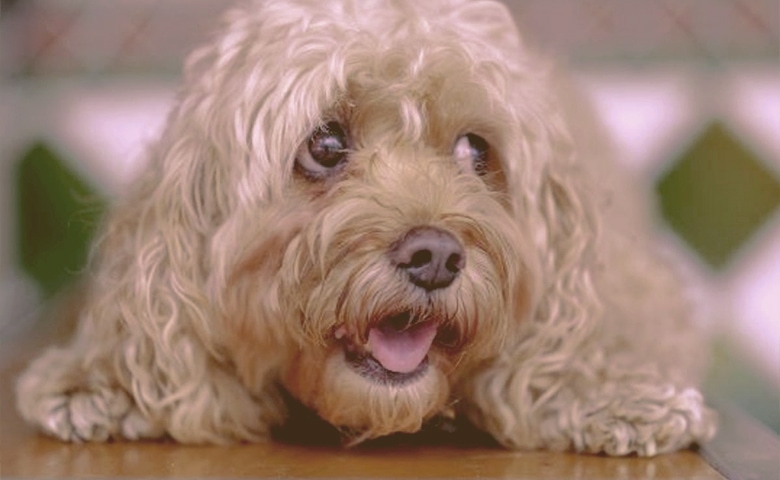
There’s one form of anxiety dogs can have that deserves a space of its own to explore. These dogs experience what is called separation anxiety. This type of anxiety is generally a sign that your dog is not getting enough time with its owner.
Some breeds of dogs need more attention to thrive. When their owner is away for long periods of the day, they may begin exhibiting symptoms of anxiety. At first, these may only happen when the owner is away. This can make it seem like a sudden change when symptoms like restlessness/heavy panting spill over into leisurely hours.
If your dog is acting this way there are a few things you can do. Schedule time every day to play with them or take them for a walk. If you’re not opposed to getting another dog, you could also provide them with a playmate.
Your Dog May Have Sustained an Injury
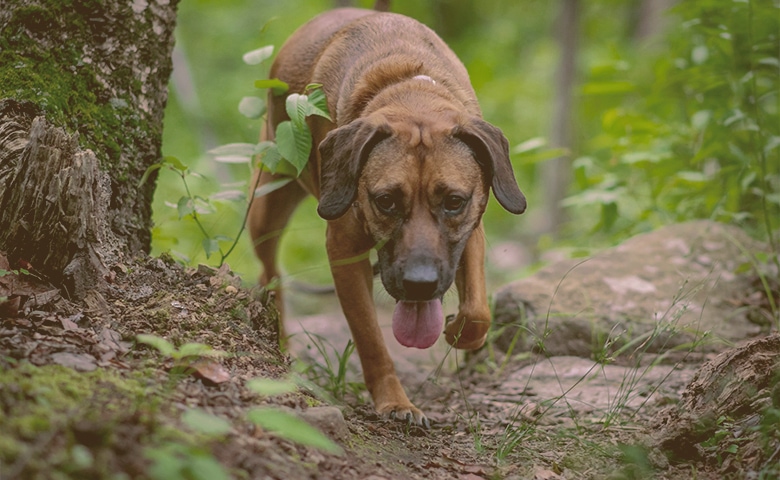
If your dog sustains an injury, the pain they are feeling, on top of the elevated stress levels it causes, can lead to them panting heavily and behaving restlessly. If you believe this is the problem you should examine your dog for any signs of injury, including everything from open wounds to bruising.
Just remember not all wounds are completely visible to the naked eye. You can also watch to see if they avoid laying down the way they normally would, or are avoiding stepping too hard on a specific leg or paw.
Your Dog May Be Having an Allergic Reaction
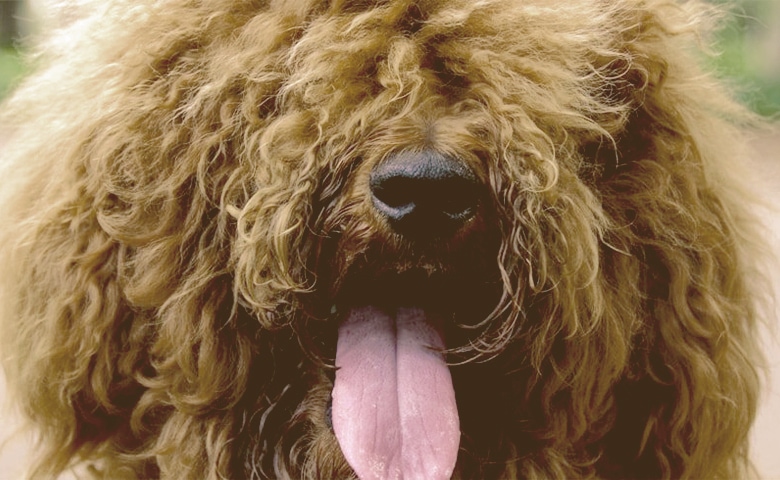
This is especially true if your dog’s panting coincided with a change in medication and/or diet. Sometimes the allergic reactions that dogs have cause inflammation and other issues which can result in difficulty breathing.
Other signs that your dog is having an allergic reaction include:
- An increase in scratching: Just like humans, dogs sometimes get itchy when they encounter something they are allergic to. If your dog won’t stop scratching him/herself–despite not having fleas–there’s a chance an allergic reaction is taking place.
- Puss in their eyes: Some dogs even have seasonal allergies. If you live in an area where pollen is everywhere during the spring and your dog is panting heavily with puss coming out of their eyes, they may have seasonal allergies. Just remember, these reactions vary in severity and you should see your vet.
- Facial swelling: Many dogs will have their faces swell up when they encounter something they’re allergic to. The swelling could show up around the eyes, ears, and jowls. You can use a recent picture for reference if you’re not sure whether your dog’s face is swollen or not.
It’s important to note that the symptoms we listed are merely the most obvious signs your dog has allergies. Other common symptoms include diarrhea, vomiting, sneezing, and even hives. If you believe your dog is having an allergic reaction to a medication, call your veterinarian and ask if you should continue giving it to them.
Your Dog Could Have Cushing’s Disease
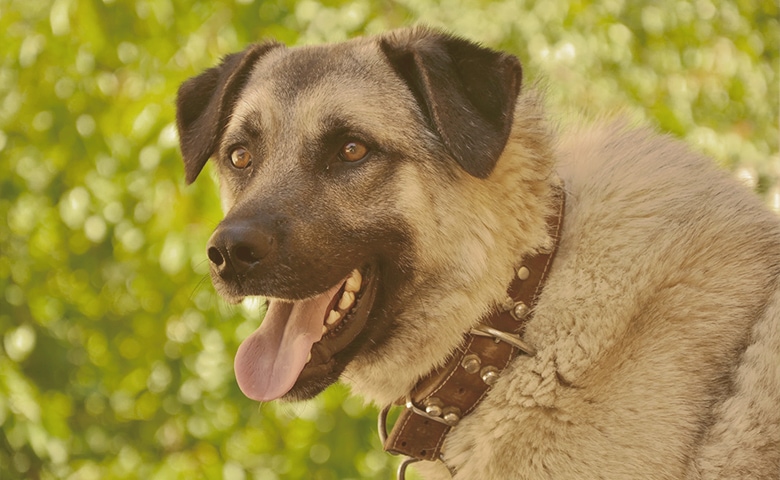
Cushing’s disease is a serious condition that affects both humans and dogs. Due to a tumor on the pituitary gland, afflicted dogs produce too much of the stress hormone cortisol. The higher levels of cortisol in their body cause them to pant more rapidly.
If you’re worried that your dog may have Cushing’s disease you should go and see your veterinarian as soon as possible. In the meantime, you can look for these other symptoms that might suggest they have the condition:
- Frequent urination: When they have Cushing’s disease, water will pass through a dog’s system more quickly than it otherwise would. If your dog wants to go out at night to urinate–when they don’t normally–there’s a chance that they may have the condition.
- Excessive consumption of water: If your dog suddenly starts drinking more water than usual, it could be a sign of Cushing’s disease. Again, this goes back to them losing water too quickly.
- Swelling of the belly: it’s normal for a little swelling of the belly after a dog has just eaten. However, increased levels of cortisol in the blood can cause a dog’s belly to begin to bloat all the time. If your dog seems to have a potbelly, make sure and bring them to the vet, as even if it’s not Cushing’s disease it could be a sign of something else.
We should note here that these symptoms could potentially point to other problems like heart issues. You should talk to your veterinarian before jumping to any solid conclusions. These are merely signs to watch for.
Your Dog Might Be Experiencing Congestive Heart Failure
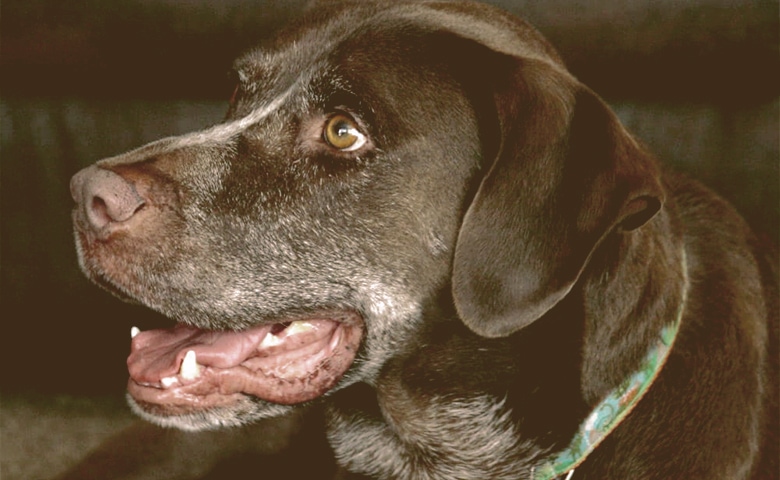
Similar to when a human experiences congestive heart failure, dogs can suddenly find it harder to take full breaths or exercise for periods of time that used to be normal for them. They may appear restless but have difficulty moving for long periods all the same.
When dogs have CHF their heart has trouble filling up and letting go as well as pumping blood to their entire body. This causes an increase in blood pressure and heart rate that puts pressure on the lungs and makes breathing more laborious. Thus, resulting in the increased panting that owners often notice.
Other symptoms that might suggest your dog is experiencing CHF include:
- Decreased physical activity: Due to the strain on their heart and lungs, dogs with CHF can find it far more taxing to engage in exercise they once did effortlessly. They may pace restlessly for brief periods then lay down for a while.
- Coughing: Alongside their faster panting rate, many dogs will cough more frequently when they’re experiencing heart failure due to the strain of breathing in the air. It’s important to note that coughing could also be a sign of other issues, as we’ll discuss in the following section.
- Blue gums: This is probably the most obvious sign of heart failure. If a dog’s gums turn blue it’s because not enough oxygen is being carried in their blood. If this happens you need to get your dog to the vet as soon as possible.
It’s important to stress that just because your dog is experiencing heart failure, doesn’t mean they can’t still live for many more years. They can. First, your veterinarian will run a number of tests, like listening to your dog’s heartbeat and conducting a blood and urine analysis. Once the diagnosis is complete, they’ll likely recommend a medication to manage the disease.
Your Dog May Have Asthma
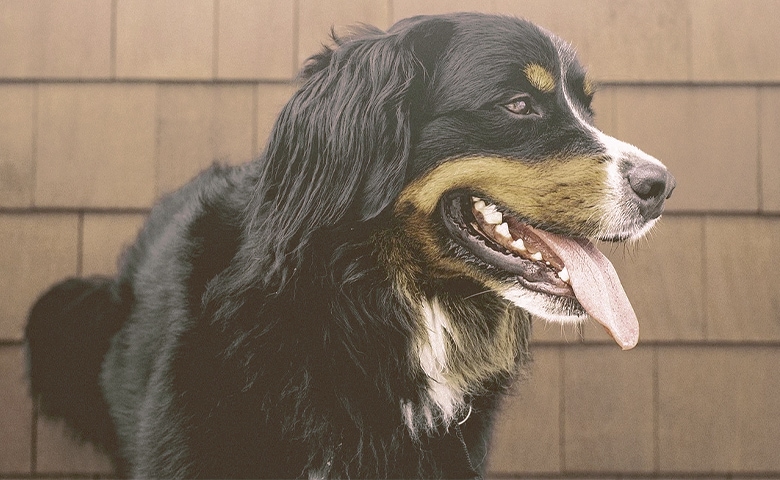
Asthma can become a major problem for dogs of any age because frequent attacks can damage their lungs. One of the signs that a dog has asthma is when they begin panting rapidly with their mouth open. If you notice this in conjunction with a lot of wheezing and coughing as well as less energy and appetite, your dog may need treatment.
We should note here that if your dog has asthma it can easily be triggered by anything from cigarette smoke to your favorite air freshener. Pay attention to when your dog has its worst attacks and see if there are any common denominators in the environment that may be contributing. Still, you should take them to the vet and make sure asthma is the problem as well.
After an examination and several tests, your veterinarian will likely encourage the use of an inhaler to combat asthma attacks and other symptoms. The inhalers go over the dog’s face like a mask and help them open their airways back up so they can breathe easily once again.
Your Dog May Be Experiencing Bloat
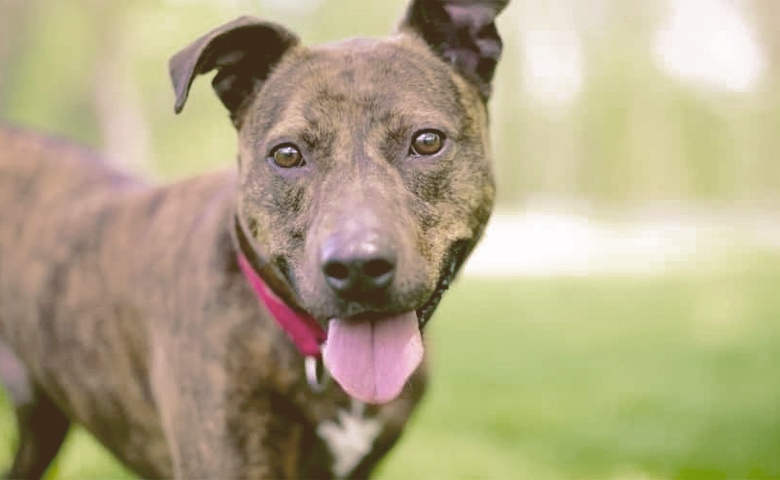
While bloating may not sound like a serious issue, it can actually be life-threatening to certain breeds of dog. Particularly dogs with deep chests like great danes. If this sounds like your dog, don’t waste another minute and call your vet right away.
The bloating is often a result of the stomach filling with gas and then twisting till it’s blocked. The stomach then puts pressure on their diaphragm making it far harder for them to take in the air necessary to breathe. They pant rapidly to make up for the limited oxygen they can bring in at a time.
Aside from rapid panting, the biggest sign that your dog is experiencing bloat is when a noticeably large bump appears on their side when they lay down. That is their stomach, which also might be cutting off circulation to vital organs with the pressure it brings.
It’s important to note that while this kind of bloat primarily affects deep-chested dogs, it can affect any breed. This means that you should still get it checked out if your dog is showing the same symptoms–regardless of if they are in the main risk category.
So Really, Why is My Dog Panting and Restless?

There’s a whole slew of reasons why your dog is panting rapidly while behaving restlessly. They may be experiencing a temporary–though still dangerous–condition like overheating, dehydration, and/or anxiety. On the other hand, they could also be experiencing a long-term conditions like asthma, Cushing’s disease, heart failure, cancer, and even bloat.
The only way to know for sure is to get them into the vet’s office as soon as possible. Your local animal doc can run the proper tests and hopefully catch the problem early enough to effectively treat it. With modern animal medicine, chances are your puppy will come out breathing easier than they have in a long time. If they could thank you, they would.

